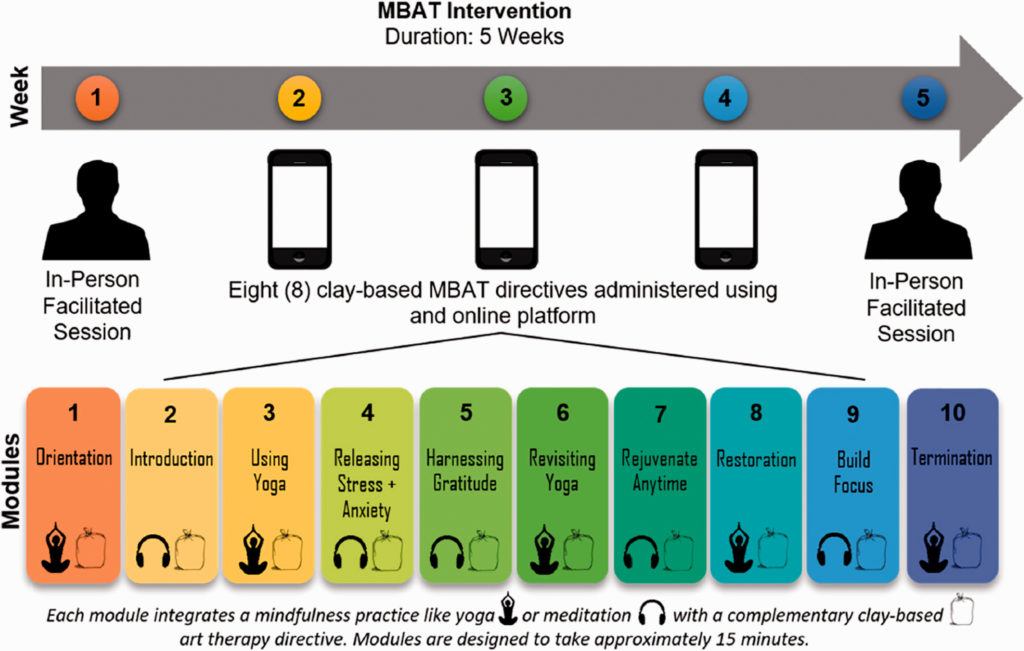Art Education Collaborates With College of Medicine on Biobehavioral Utility of Mindfulness-Based Art Therapy

Structure of MBAT intervention designed to maximize user accessibility and implemented by the group.
Excerpts Courtesy of Sage Journals
The FSU Department of Art Education and the FSU College of Medicine collaborated on a recent study involving mindfulness-based art therapy.
Mindfulness-based art therapy (MBAT) combines mindfulness practices with art therapy to promote health, wellness, and adaptive responses to stress. Mindfulness-based stress reduction programs have been demonstrated to reduce anxiety symptoms in people with generalized anxiety disorder and serious medical conditions such as cancer. However, the benefits of MBAT specifically—not just in clinical anxiety disorders, but also for routine day-to-day anxiousness—have received little attention until recently. In their mini-review, they summarize how several established mindfulness-based interventions affect mental health with a specific focus on MBAT. They also describe and evaluate data indicating involvement of specific neural circuits and neuroendocrine markers of stress and/or anxiety. Lastly, they suggest areas of focus for future rigorous research on MBAT interventions and propose multiple biobehavioral and physiological mechanisms through which therapeutic benefits may be achieved.
Recent studies demonstrate the therapeutic potential of intensive MBAT and other mindfulness-based interventions for severe health conditions including cancer, heart disease, and anxiety, with effectiveness that rivals and sometimes even exceeds cognitive behavior therapy. MBAT-based approaches appear to be poised to mature into large-scale, cost-effective therapies for mental health disorders and symptoms comorbid with other serious health issues. However, the field currently suffers from inconsistent deployment protocols and needs additional validation data—at the behavioral, neuroendocrine, and neural levels—in order to establish best practices.
The neural basis of the nature and benefits of mindfulness, and especially MBAT specifically, is still in its early days. Nonetheless, a good deal of data has been already generated, and published work in this area is growing very rapidly. The group believes it is important to assess what has been learned to date and to further improve experimental designs and approaches.